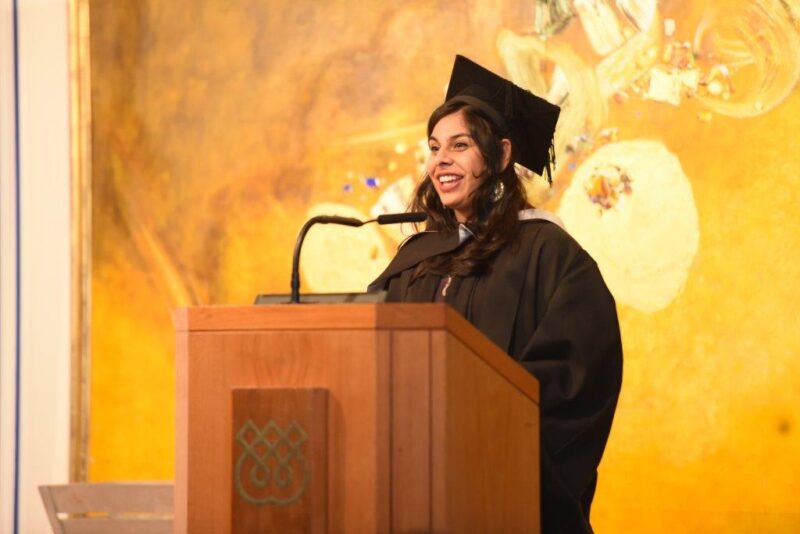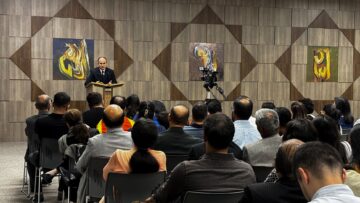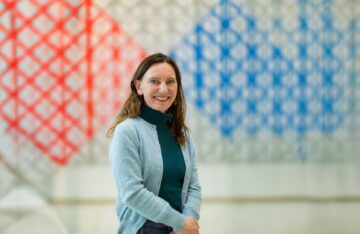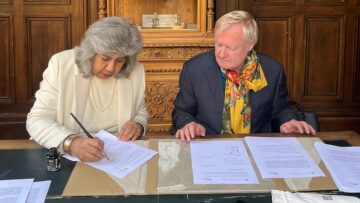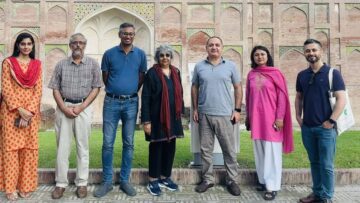The graduation ceremony for the eighth cohort of the Institute’s Secondary Teacher Education Programme (STEP) was held on 1 April 2017 at The Ismaili Centre, London. Sixteen students from Canada, India, Pakistan, Portugal, the United Kingdom and the United States of America graduated at the ceremony with a double Master’s degree: an MA in Education (Muslim Societies and Civilisations) and an MTeach (Master of Teaching). Both of the degrees are awarded by the University College London (UCL), and were presented to the graduates by Dr Farhad Daftary, Co-Director at the IIS, and Professor Becky Francis, Director of the Institute of Education, University College London.
The valedictorian, Sais Mandjee Rehamtula, from Canada, received a double distinction in her MA and MTeach degree, in addition to the Outstanding STEP Student award for her exceptional performance during the two year programme. A further seven students also received a distinction in either, both or one of their MA or MTeach degrees. The success of the graduands was a testament to the remarkable achievements and dedication of both the graduands and the faculty at the IIS and the UCL IOE.
Speaking about her journey, this year’s valedictorian, Sais Mandjee Rehamtula, said:
We were provided with the opportunity to step out of our comfort zones, to challenge ourselves and to test our boundaries. The programme taught us more than just about our past and present traditions, and our faith; in so doing, it taught us about ourselves. We must now strive to constantly update our understandings of the essential principles. This is only feasible through humbleness and a real acknowledgment that there is yet so much to learn.
During the proceedings, an inspiring commencement address was delivered by Professor Paul Black, an Emeritus Professor of Science Education at King’s College London. He quoted the Catholic author, Thomas Groome’s book, Education for Life, reminding graduands that students
have a right to a curriculum that convinces them of their inherent goodness that convinces them of their dignity and self-worth, and treats them with respect that helps to develop their every good gift and talent.
The way to do this, Professor Black explained, is to
treat each pupil as valuable; to value what they have been able to do and convince them that you believe they can do better. Learners must believe that success is due to internal factors that they can change and not due to factors outside their control, such as ability.
The graduates will now serve as secondary level religious education teachers and will deliver the Institute’s Secondary Curriculum in their home contexts, with the other 250 teachers who are already teaching globally.

